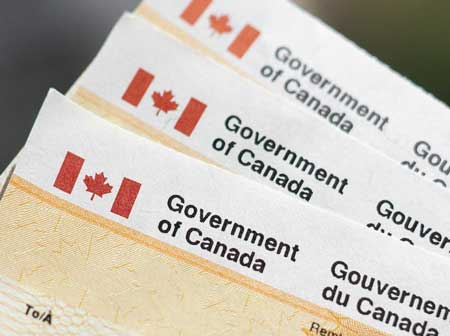COVID-19 support programs in the 2021 federal budget

TAXATION
Are you interested in staying up to date on COVID-19 support programs in Canada? This article provides a helpful overview of key changes announced in the new federal budget from April 19, 2021.
Support for individuals
The Canada Recovery Benefit (CRB) coverage will be extended by 12 weeks to a maximum of 50 weeks. The first four additional weeks will continue at $500 per week, while the final eight weeks will be at $300 per week as the economy is expected to reopen. The Canada Recovery Caregiving Benefit (CRCB) will be extended by an additional four weeks as well, to a maximum of 42 weeks at $500 per week.
The budget also proposes further legislative amendments so that CRB, CRCB, the Canada Recovery Sickness Benefit and regular Employment Insurance benefits can, if required, be extended until no later than November 20, 2021.
The various COVID-19 benefits that were taxable had to be included in income in the year in which they were received. If it was determined that some of those benefits had to be repaid, the repayment is deductible in the year that it was repaid. A proposed amendment would allow those repayments to be deducted in the year that the benefit was received, as long as the repayment is made before 2023. The taxpayer can request that the Canada Revenue Agency (CRA) amend the tax return of a prior year if necessary.
In terms of loans, the government is proposing to extend the waiver of interest accrual on Canada Student Loans and Canada Apprentice Loans until March 31, 2023. It is also planning to enhance repayment assistance to borrowers with low incomes by increasing the income threshold to qualify for the program from $25,000 to $40,000 for single borrowers. The budget also will double Canada Student Grants for two additional years and expand access to support for students with disabilities.
Support for businesses
The Canada Emergency Wage Subsidy (CEWS), which provides eligible employers who have experienced a COVID-19 related decline in revenues with a subsidy for eligible remuneration paid to their employees, was set to end on June 5. It is extended to September 25, 2021. The phase-out period will be from July 4 to September 25 this year, and during that time eligibility for the CEWS and the wage subsidy rates will gradually decrease.
A separate wage subsidy rate structure applies to furloughed employees, which is aligned with benefits provided through the Employment Insurance program. This program will be extended until August 28, 2021. The budget will require that public companies repay all or a portion of CEWS received after June 5 if aggregate compensation for specified executives in 2021 exceeds the amount paid in 2019. Specified executives are those whose compensation must be disclosed under Canadian securities legislation.
The Canada Emergency Rent Subsidy (CERS) provides qualifying organizations with rent support. There was an additional Lockdown Support program for organizations that had to cease operations or significantly limit their operations because of a public health order. Both CERS and the additional Lockdown Support program were set to expire in June but are being extended to September 25, 2021. The rent subsidy rate will also gradually decrease after July 4 to ensure an orderly phase out of the program.
The deadline to apply for the Canada Emergency Business Account, which provides interest-free, partially forgivable loans to small businesses, has been extended to June 30, 2021.
A new benefit for 2021
A new Canada Recovery Hiring Benefit (CRHB) is being introduced to provide a subsidy of up to 50 percent of the incremental remuneration paid to eligible employees between June 6 and November 20, 2021. CRHB will be available to individuals, not-for-profit organizations, registered charities, certain partnerships and Canadian-controlled private corporations (CCPCs) who have experienced a decline in revenue as a result of the pandemic. Qualifying employers can claim either the CEWS or the new CRHB, whichever is higher. As with CEWS, rates for CRHB will decrease over time providing an incentive for employers to hire new workers as soon as possible.
Disclaimer
The information provided on this page is intended to provide general information. The information does not take into account your personal situation and is not intended to be used without consultation from accounting and financial professionals. Allan Madan and Madan Chartered Accountant will not be held liable for any problems that arise from the usage of the information provided on this page.


SOCIAL CONNECT